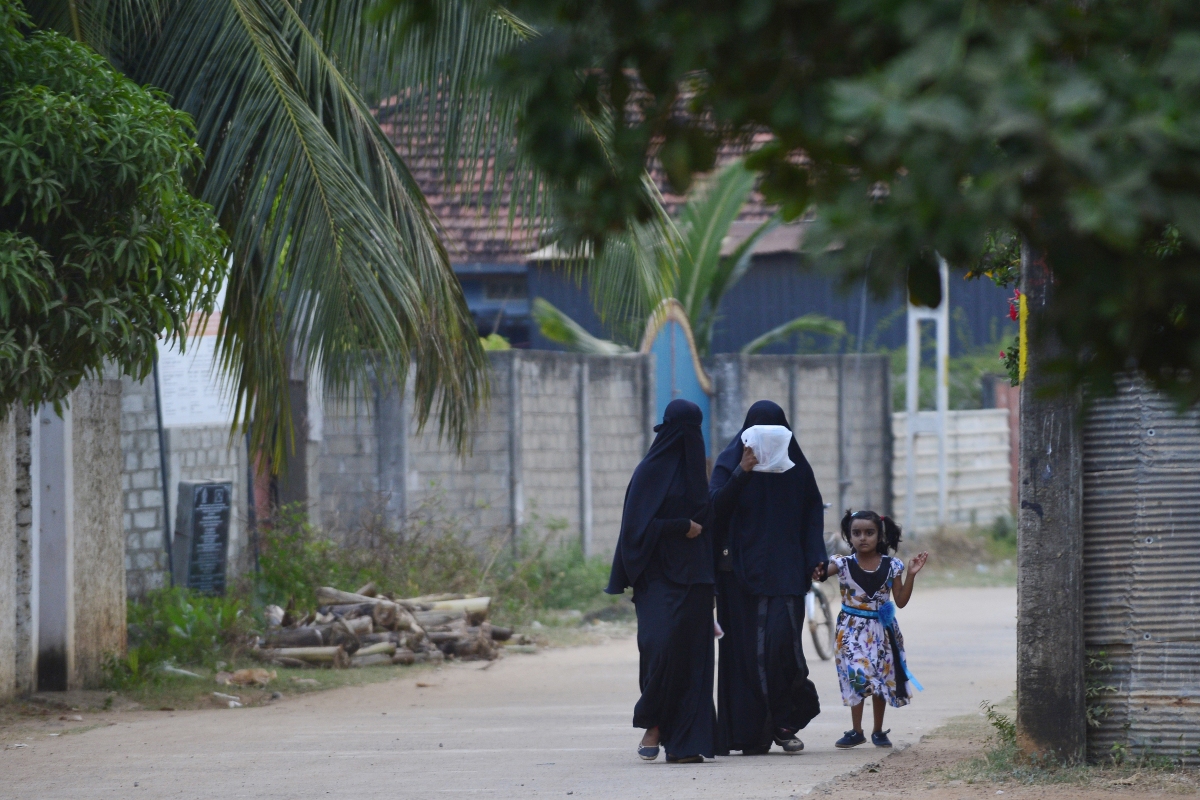Exactly a week after the Easter Sunday suicide bombings killed 253 people in the island nation, Sri Lanka issued a Presidential decree banning all forms of face covers including Islamic garments such as burqa.
Sri Lankan President Maithripala Sirisena approved the call for a ban on the face covering under an emergency law.
Advertisement
In a press release issued late on Sunday, the government said, “Any form of face covering that will hinder identification of a person is banned under emergency regulations.”
“The ban is to ensure national security…No one should obscure their faces to make identification difficult,” the statement added.
A ban on all face veils was proposed by MP Ashu Marasinghe at a recent meeting of Sri Lankan cabinet.
Marasinghe, a member of the United National Party, had also declared on Facebook that he was going to present a private member’s bill about the issue. He said that the garment is not “a traditional Muslim attire”.
Prime Minister Ranil Wickremesinghe had advised the government to defer the matter until talks with Islamic clerics could be held.
The ban on face veils does not apply on hijab and chador as the two garments do not cover the face.
According to reports, the influential All Ceylon Jamiyyathul Ulama too had asked women to avoid wearing a burqa or niqab in order to help security forces.
Reports state that Muslims across the country are concerned about their safety. Many have stopped wearing the burqa.
Authorities in Sri Lanka said that a total of 106 suspects have been arrested in multiple raids carried out across the country since the 21 April blasts at three churches and three five-star hotels.
Police are continuing their search for other members of the National Thowheeth Jamaath (NTJ), the local terror outfit and splinter group of the Islamic State, which carried out the blast.
President Maithripala Sirisena said on Friday that over 130 suspects linked to the terror group have been operating in the country. Prime Minister Ranil Wickremesinghe said Sri Lanka needs new laws to deal with threats posed by local terror outfits linked to ISIS.
The blasts also left at least 500 people injured in the serial bombings as well.









